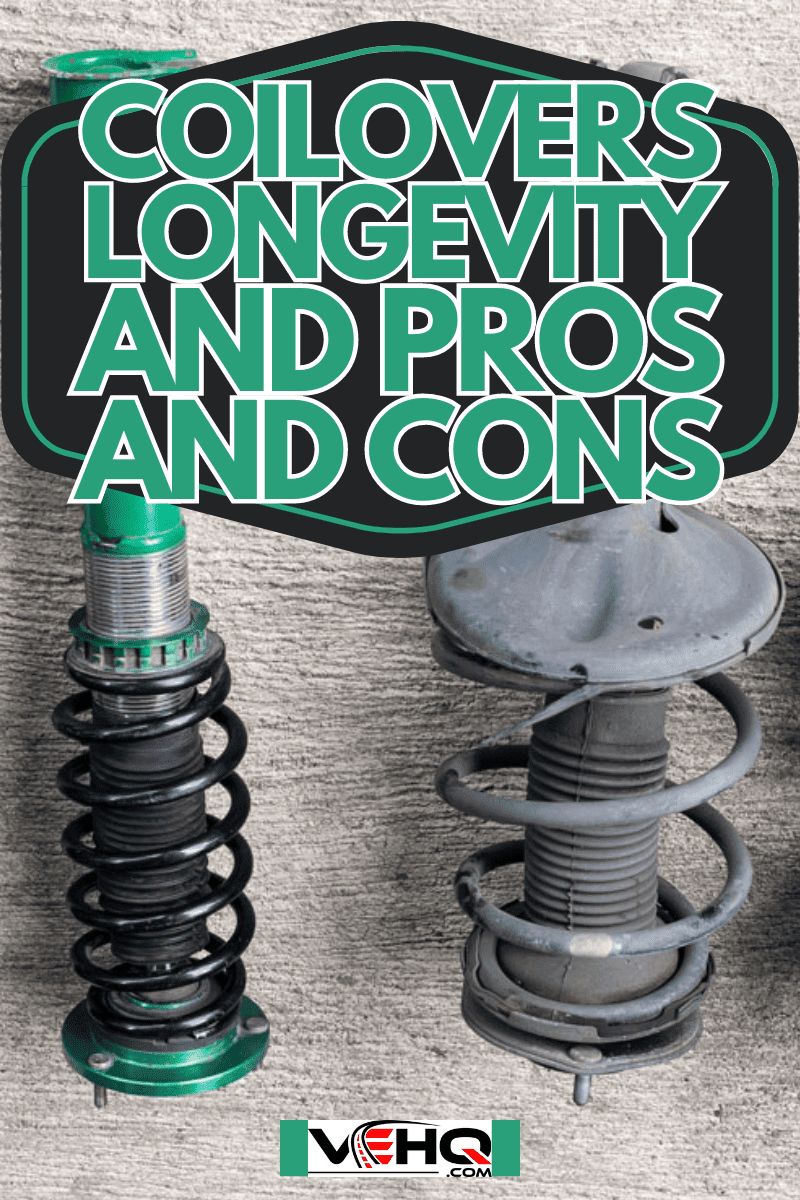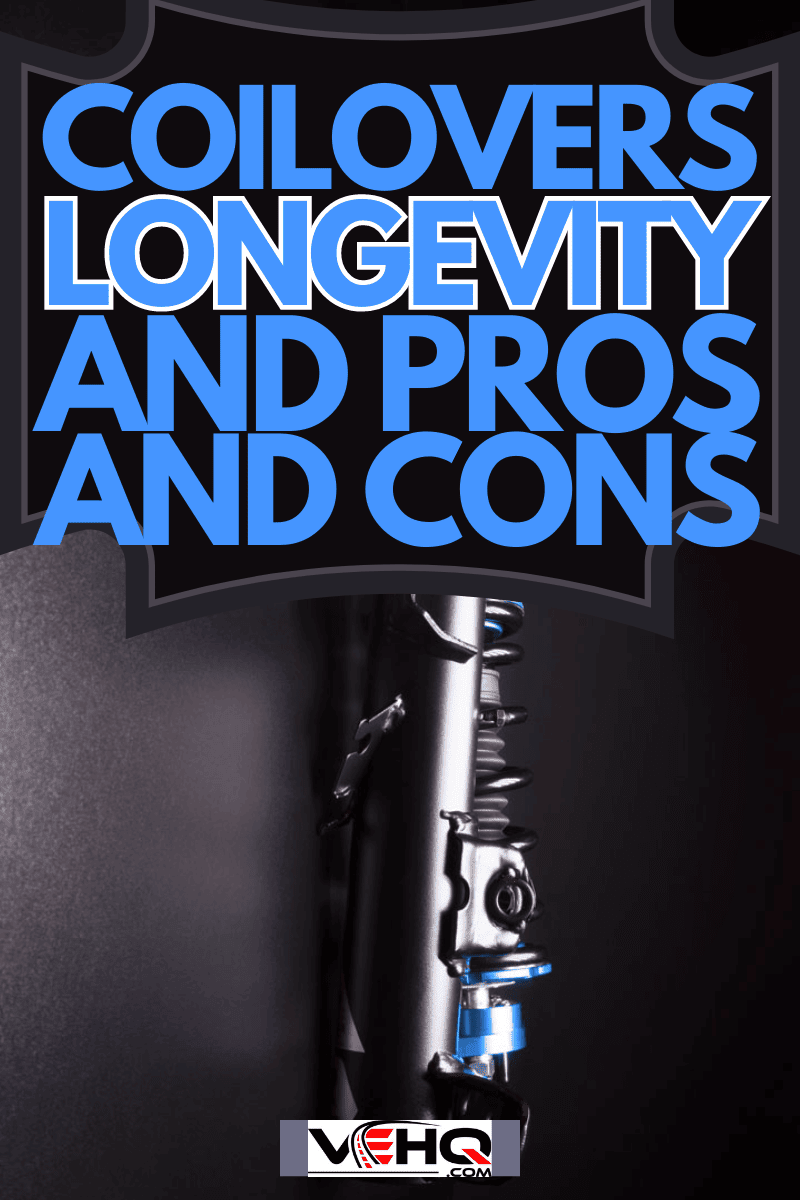Have you ever wondered how long your car's coilovers will last? Are you worried that your beloved vehicle might be on the verge of losing its edge?
Fear not, fellow car enthusiasts! We're here to guide you through the ins and outs of coilover longevity so you can keep your ride in tip-top shape. Coilovers are like the shoes of your car—they provide both style and performance. But just like shoes, they don't last forever.
So, how long can you expect your coilovers to keep your car looking and feeling great? Well, that's a tricky question, but we're here to help you find the answer.
In this article, we'll take a deep dive into the world of coilovers and explore the many factors that can affect their lifespan. From driving habits to weather conditions, we'll cover it all.
By the end, you'll have a much clearer understanding of how long your coilovers are likely to last and how you can keep them in top condition for as long as possible.
So, buckle up and get ready for a wild ride through the fascinating world of coilovers. Whether you're a seasoned car enthusiast or just starting out, this article is sure to provide you with valuable insights and tips that will help you get the most out of your ride.
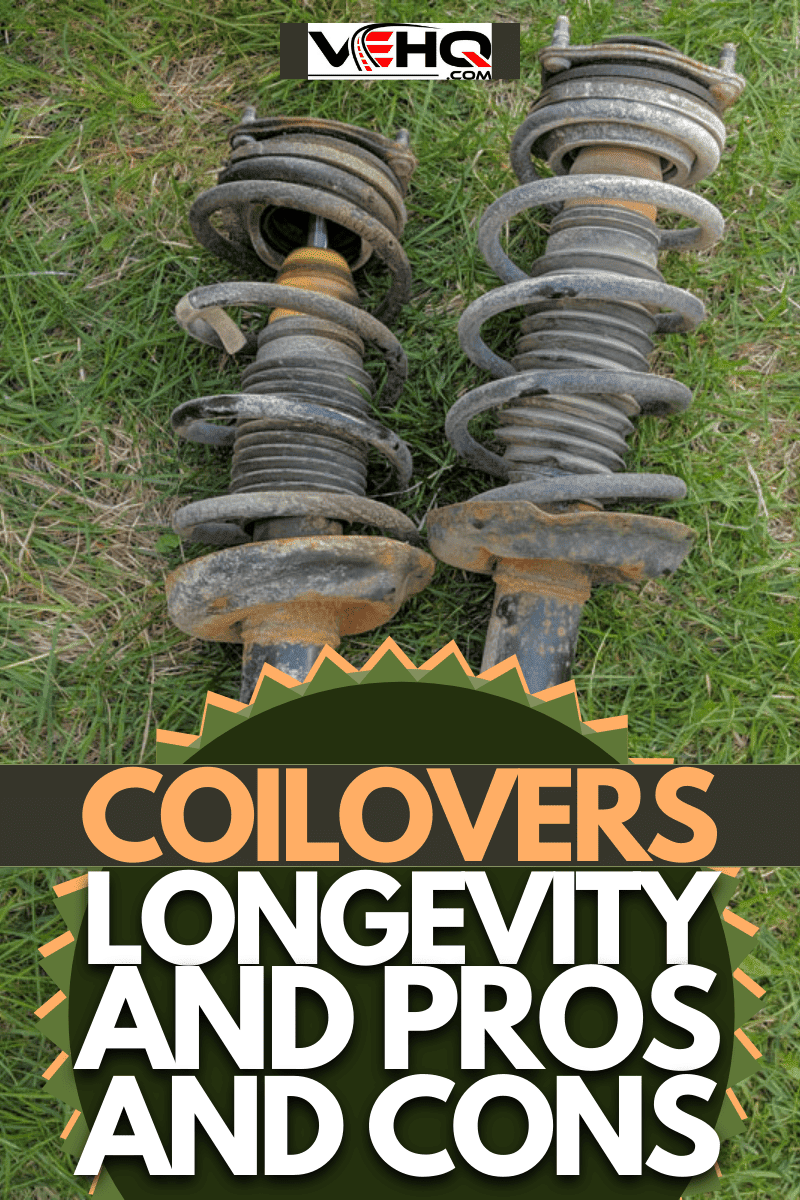
How Long Do Coilovers Last?
Ever wondered what determines the lifespan of coilovers in a vehicle? As a crucial part of the suspension system, it's essential to know how long these components last and the factors affecting their longevity.
First and foremost, it's important to note that not all coilovers are created equal.
An excellent set of coilovers that are correctly installed and maintained can last a significant amount of time, typically 150,000 miles or more. This figure, however, can vary depending on the quality, usage, and maintenance.
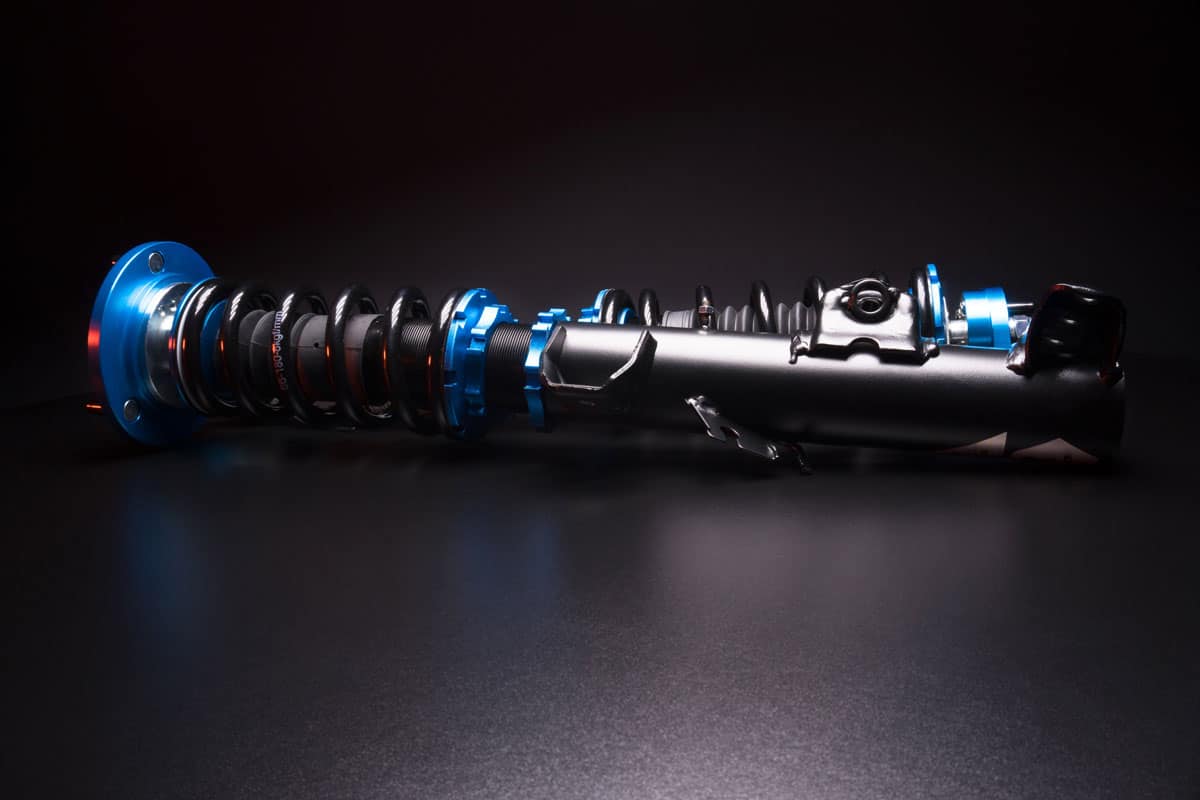
There are several factors that play a role in coilover lifespan, which include:
Quality
Investing in high-quality coilovers can be a game-changer. Quality components tend to last longer and are designed to withstand extreme conditions.
They often come with a warranty, usually between 1-3 years, with some manufacturers even offering a lifetime warranty.
Installation
Having your coilovers professionally installed can make a huge difference in their longevity. Additionally, ensuring proper alignment with the suspension components can help in preventing excessive wear and tear.
Maintenance
Regular checks and necessary adjustments to your coilovers can help maintain optimal performance and extend their lifespan.
Paying attention to the type of material used in the springs and shocks is also essential for maintenance.
Now that you know the factors affecting coilover lifespan, you might be wondering about the signs of worn-out coilovers. Some common indicators include:
- Oil leaks
- Loud thumps after hitting rocks or going over bumps
- Popping noise from the camber plating
- Squeaking noise from coilovers
With proper attention to quality, installation, and maintenance, your coilovers can serve you well and have the potential to surpass the typical 150,000-mile mark.
So, buckle up and enjoy the ride, knowing that your well-maintained suspension system stands strong by your side!
Signs of Bad Coilovers
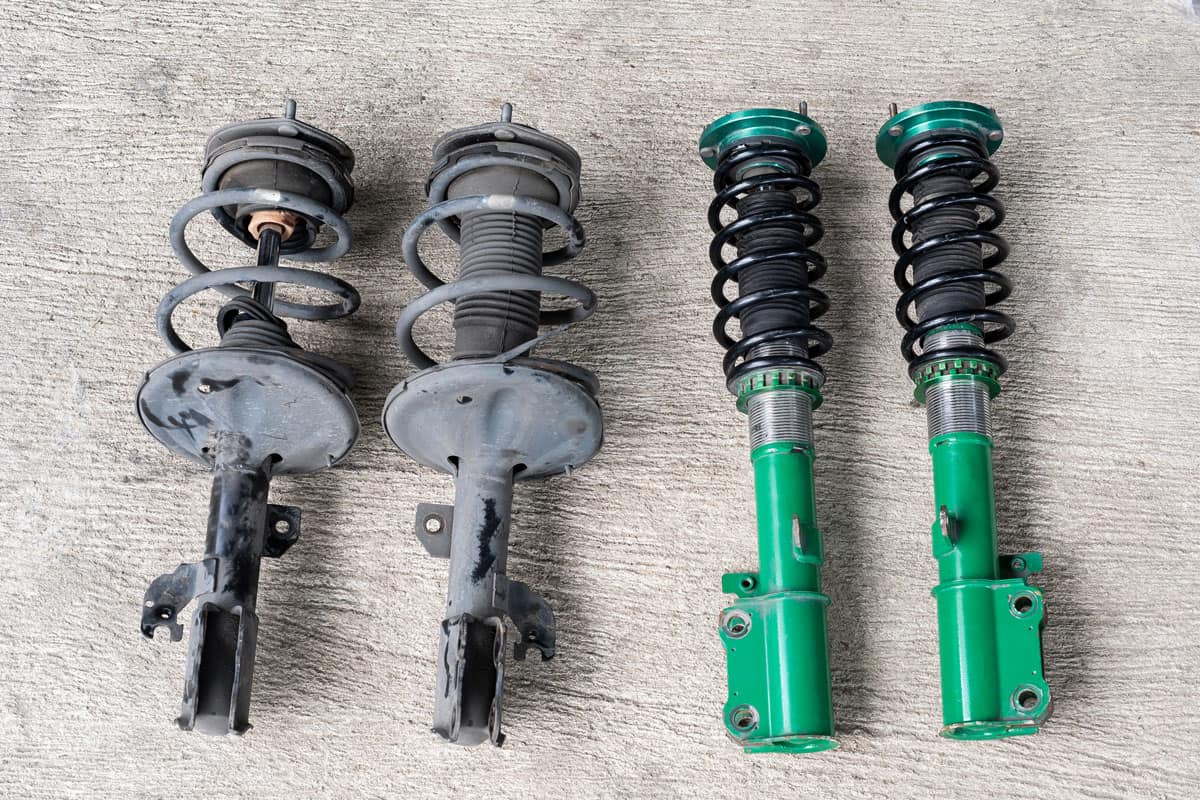
Imagine you're driving your car, and suddenly you notice that the ride feels a bit off. Something doesn't seem quite right.
Could it be your coilovers? In this section, we'll dive deep into understanding the signs of bad coilovers and how to identify them.
Get ready for an engaging experience that'll not only educate you but also help you troubleshoot any coilover issues your vehicle might be facing.
How Do You Know If Coilovers Are Bad?
Coilovers play an essential role in a car's suspension system, and as such, it's crucial to keep an eye out for any signs that they might be failing.
Let's explore some common indications that your coilovers may not be performing at their best:
Tires bouncing excessively
If you notice your tires reacting or "bouncing" more than usual after hitting a bump, this could be a sign that your coilovers are not working correctly.
Your vehicle may also exhibit a "clunking" noise as a result of this excessive bouncing.
Unusual tire wear
Bad coilovers can cause uneven tire wear due to the vehicle's weight not being evenly distributed. Keep an eye out for abnormal tire wear patterns, especially if your tires are suddenly wearing down much faster than usual.
Poor handling
When coilovers are not functioning correctly, the car's handling may suffer. You might experience difficulty turning or maintaining control, especially during hard acceleration or sudden stops.
Squeaking or thumping noises
Coilovers below their usual performance range might produce squeaking or thumping sounds. These noises could be fixed without replacing the coilovers entirely, depending on the specific issue.
Identifying the signs of bad coilovers early on can save you time and money in the long run. It can also help you avoid potential damage to other vehicle components or even improve your overall driving experience.
Coilover Maintenance and Lifespan
When it comes to giving your vehicle that perfect balance of handling, performance, and ride quality, coilovers are a popular option for many enthusiasts.
As the star of this article, you might be wondering how long they last and what it takes to maintain them. Fear not, we're here to clear the air and help you with all your coilover-related questions!
How to Maintain Your Coilovers
Maintaining your coilovers is key to prolonging their lifespan and keeping your ride smooth.
Regular maintenance includes cleaning and inspecting components, lubricating moving parts, and ensuring proper installation. Here's a simple checklist to keep your coilovers in top shape:
- Periodically clean the coilovers with a soft brush and mild detergent to remove dirt and grime.
- Inspect the springs, shocks, and mounting hardware for signs of wear, damage, or corrosion.
- Lubricate the threads and other moving parts with a high-quality silicone spray or grease to avoid seizure and help ease adjustments.
- Make sure the coilovers are installed correctly and aligned properly to avoid uneven wear and tear.
- Consider using coilover covers to protect them from dirt, debris, and water, especially during harsh weather conditions.
How Long Do Shocks on Coilovers Last?
Now, let's talk about the potential lifespan of the shocks on coilovers. A well-maintained set of coilovers can last a long time—some even reach an impressive 150,000 miles or more!
However, this number can vary depending on various factors such as the quality of the components, the type of material used, and the driving conditions they're subjected to.
It's also important to remember that driving habits, road conditions, and weather can all impact the life of your coilovers.
For example, some manufacturers, like Tein, suggest that their coilovers can last between 50,000 to 75,000 miles before a rebuild is necessary, but this range might vary depending on individual usage and care.
Coilovers for Daily Use
The word "coilover" might evoke images of high-performance cars tearing up the racetrack, but what about using coilovers for daily driving?
Are they a practical choice for everyday use? Strap in as we delve into this question and explore the benefits and considerations of using coilovers for daily driving.
One key aspect to consider when thinking about using coilovers for daily driving is the type of coilovers you're considering. High-quality, adjustable coilovers can offer a great balance between performance and comfort for daily use.
They allow you to make adjustments to the suspension according to your preferences and driving conditions. This means you have the ability to tailor the ride quality to suit your needs, providing a comfortable ride on the daily commute and improved handling for those spirited weekend drives.
A good set of coilovers can last over 150,000 miles if properly installed and maintained.
Maintenance is another important factor to take into account when thinking about coilovers for daily use. To ensure they last as expected and continue providing optimal performance, periodic checks for wear and tear should be performed, and adjustments made accordingly.
However, it's important to note that not all coilovers are created equal. Some lower-quality coilovers can have a harsher ride quality, which might not be suitable for daily driving.
Coilovers can be a suitable choice for daily driving if you're looking to improve handling and enjoy the benefits of a customizable suspension system.
Rebuilding and Replacement
As a car enthusiast, you may often wonder how long coilovers last and when it's time for rebuilding or replacement.
This is an important aspect to consider, as maintaining the longevity of your suspension system ensures a smooth and comfortable ride.
How Often Should You Rebuild Coilovers?
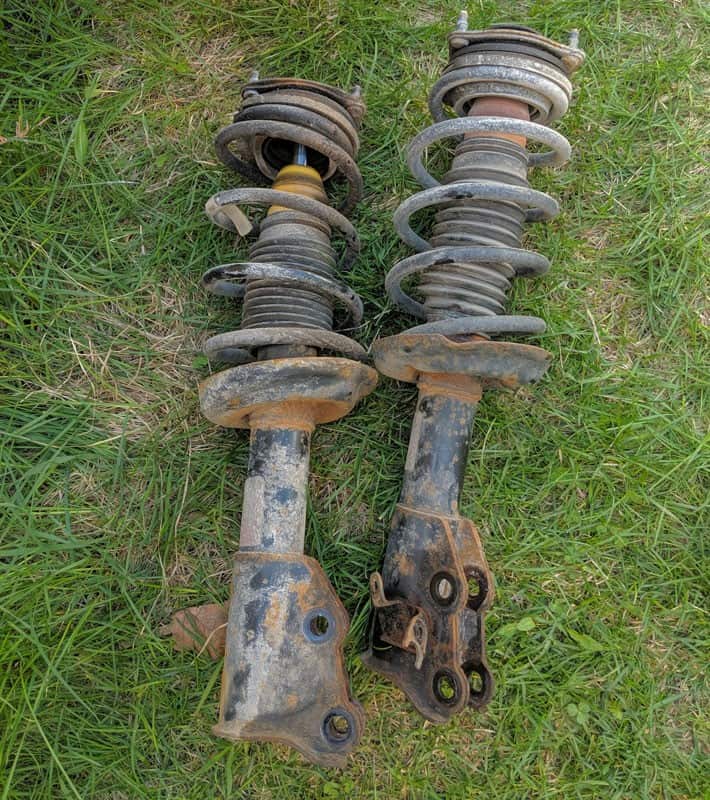
Coilovers are known for their durability and performance, but like any other automotive component, they'll eventually wear out.
However, it's essential to regularly inspect and service your coilovers to extend their lifespan. This can help maintain their performance, reduce wear and tear, and avoid potential issues down the line.
Remember, a healthy suspension system is crucial for an enjoyable driving experience.
How Much Does a Coilover Replacement Cost?
Once your coilovers have reached the end of their life or become damaged, it's time to start thinking about replacement.
The cost of coilover replacement can vary greatly, depending on factors such as the make and model of your vehicle and the quality of the coilovers you choose. Here's a rough estimate of what you can expect:
- Economy-level coilovers: $300 to $600 per set
- Mid-range coilovers: $600 to $1,200 per set
- High-performance coilovers: $1,200 to $3,000+ per set
Keep in mind that these estimates don't include labor costs. It's advisable to consult with a trusted mechanic or suspension specialist to give you an accurate quote and recommendation for your specific vehicle.
To extend the life of your coilovers and maintain their performance, be sure to follow the manufacturer's recommendations for maintenance.
With proper care, your coilovers will provide you with a comfortable and thrilling ride for many miles to come.

